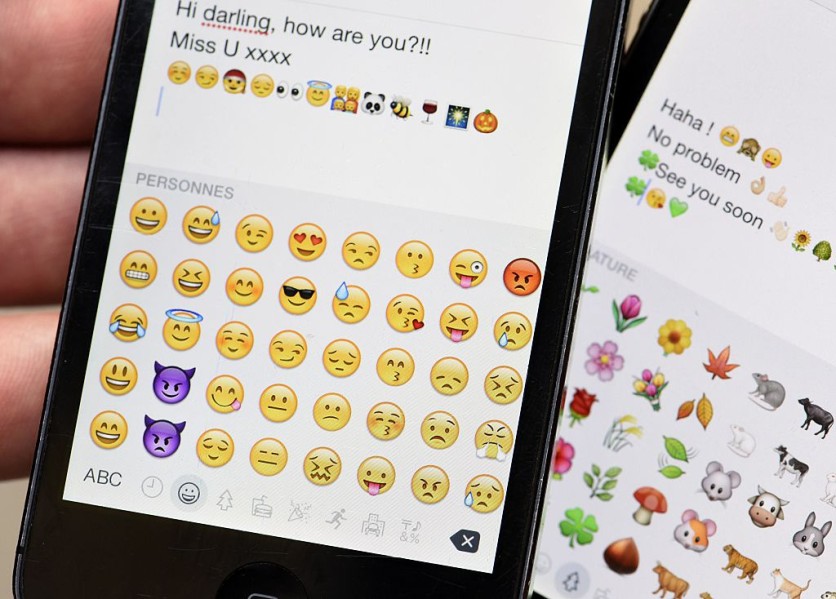You may want to be extra careful with sending the thumbs-up emoji by phone, as a judge in Canada has ruled that it can be used in a contract agreement similar to a digital signature for validity purposes.
Justice Timothy Keene of the Court of King's Bench in Saskatchewan province argued courts need to adapt to the "new reality" that we are in an era where many people communicate with emojis, as he ordered a farmer to pay C$82,000 ($61,442) for an unfulfilled contract, The Guardian reported.
He said the courts will now have to consider emojis as language, even in business communications.

Canadian Court Rules Thumbs-Up Emoji Is Valid Like Signature in Contract Agreement
The Court of King's Bench recently presided over a case involving Kent Mickleborough, a grain buyer for South West Terminal, who sent a text message to clients on March 2021, saying that the company was looking to buy 86 tons of flax at C$17 ($12.73) per bushel.
Mickleborough spoke with farmer Chris Achter over the phone and texted an image of a contract to deliver the flax in November 2021. Mickleborough applied an ink signature to the contract, which he sent with a text that read: "Please confirm flax contract."
According to the legal documents, Achter replied with a thumbs-up emoji, which Mickleborough interpreted as Achter entering into the contract. However, Achter Land & Cattle Ltd. failed to deliver the flax on the given date, and at the time, prices for the crop had increased.
Achter said in an affidavit that the thumbs-up emoji only indicated that he had received the message and had not agreed to the contract.
"I deny that he accepted the thumbs-up emoji as a digital signature of the incomplete contract," Achter said. "I did not have time to review the Flax Contract and merely wanted to indicate that I did receive his text message."
His lawyer also said his client was "not an expert in emojis." On the other hand, Mickelborough argued that Achter had agreed to previous contracts by texting back short messages like "looks good," "OK," or "Yup" in the past, the New York Times reported. The two men had a longstanding business relationship.
To settle the issue, Keene relied on the website Dictionary.com, which said the thumbs-up emoji is used to "express assent, approval, or encouragement in digital communications, especially in Western cultures," Engadget reported.
Thus, Keene agreed with Mickelborough that Achter's thumbs-up emoji meant an expression of approval.
"This court readily acknowledges that a emoji is a non-traditional means to 'sign' a document but nevertheless under these circumstances this was a valid way to convey the two purposes of a 'signature'," Keene noted.
Achter's lawyer suggested that allowing the thumbs-up emoji to signify approval would open the "flood gates" to other emojis carrying legal merit. However, Keene dismissed this concern.
The judge said: "This Court cannot (nor should it) attempt to stem the tide of technology and common usage (of emojis)... This appears to be the new reality in Canadian society and courts will have to be ready to meet the new challenges that may arise from the use of emojis and the like."
Keene then found that the contract was enforceable and consequently breached. He awarded damages to the amount of C$82,200.21 ($61,498.09 US) plus interest.
Emojis as a Form of Expression
Emojis have become a prevalent means of emphasizing text messages or expressing reactions to social media posts. For many individuals, these pictorial symbols can effectively replace words.
The Washington Post reported that Oxford recognized the "tears of joy" emoji as the word of the year in 2015, proving that emojis have been widely embraced as a s form of expression.
Emojis have also made their way into the business realm, which usually utilizes formal words to communicate with each other. Some companies now prefer using workplace communications platforms like Slack over formal and traditional methods like email, etc.
Related Article : Telegram's New Update Brings Additional Emojis, Productivity Features

ⓒ 2025 TECHTIMES.com All rights reserved. Do not reproduce without permission.




